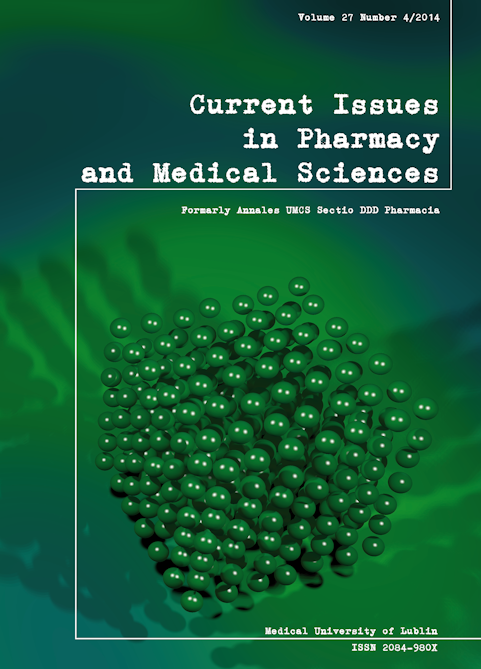Central sleep apnea – a case report
DOI:
https://doi.org/10.2478/cipms-2014-0004Słowa kluczowe:
entral sleep apnea, heart failure, servo-ventilation, BiPAP STAbstrakt
Central sleep apnea (CSA) is a disease characterized by repetitive episodes of the socalled central apneas during sleep. The disease has a very complex etiology. In clinical practice, the most important causes of CSA are disorders of the central nervous system, congestive heart failure or certain pathological changes of the respiratory muscles. We present a case of a 43-year-old male with severe CSA, who was successfully treated with BiPAP ST equipment.
Bibliografia
Bradley T.D., Philipson E.A.: Central sleep apnea. Clin. Chest. Med., 13, 493-505, 1992.
Gozal T.D. et al.: Peripheral chemoreceptor function in children with the congenital hypoventilation syndrome. J. Appl. Physiol., 74, 379-387, 1993.
Bradley T.D.: Right and left ventricular functional impairment and sleep apnea. Clin. Chest. Med., 13, 459-479, 1992.
Garcia-Touchard A., Somers V., Olson L.J.: Central sleep apnea. Chest., 133(6), 1495-1504, 2008.
Malhotra A., Owens R.: What is central sleep apnea? Respir. Care., 55(9), 1168-1178, 2010.
Javaheri S. et al.: The performance of two automatic servo-ventilation devices in the treatment of central sleep apnea. SLEEP., 34(12): 1693-1698, 2011.
Randerath W. J.: Therapeutic options for the treatment of Cheyne-Stokes respiration. Swiss. Med. Wkly., 138 (9-10); 135-139, 2009.
Arzt M. et al. Effects of dynamic bilevel positive airway pressure support on central sleep apnea in men with heart failure. Chest., 34(1):61-66, 2008.
Hormann C. et al.: Biphasic positive airway pressure (BIPAP)- a new mode of ventilatory support. Eur. J. Anaesthesiol., 11(1), 37-42, 1994.
Martins R.C., Andersen M.L., Tufik S.: The reciprocal interaction between sleep and type 2 diabetes mellitus: facts and perspectives. Braz. J. Med. Biol. Res., 41 (3): 180-187, 2008.
Pobrania
Opublikowane
Numer
Dział
Licencja
Prawa autorskie (c) 2014 Autorzy

Praca jest udostępniana na licencji Creative Commons Attribution-NonCommercial-NoDerivatives 3.0 Unported License.


